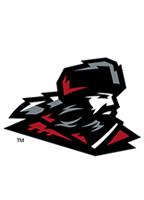Our Program
Learning extends beyond the classroom: in the field, in the lab, on a research excursion, or as part of an internship. Optional Learning Community housing provides biology and allied health majors with a community of like-minded fellow students from the start!
Biomedical Science (B.S.)
Our Bachelor of Science in Biomedical Science programs provide a strong biology background in preparation for admission into clinical, research, medical, and graduate programs in the health sciences. Some of the most unique opportunities offered to students connects them with expert faculty with human health related research, such as bioinformatics projects and research of cancer biology. Additional highlights include the health care practicum, junior seminar for preparation, and our high-quality clinical affiliations and placements for selected programs.
- General Biomedical Sciences
- Medical Genomics and Counseling
- Medical Lab Sciences
- Pre-Medical Sciences
- Pre-Pharmacy
- Pre-Physical Therapy
- Pre-Physician Assistant
*Please see the CU degree requirements effective Fall 2023. All enrolled students can also review their degree program requirements and track progress to degree completion in Degree Works.
Medical laboratory scientists perform many of the laboratory tests used in the detection, diagnosis and treatment of diseases. As part of the health care team they contribute data on blood, tissues and fluids using a variety of precise methods and technologies. This program combines natural science and liberal arts education with clinical instruction. Our medical lab program is rigorous and demanding. It attracts individuals with strong quantitative and analytical skills. Students should be prepared to study in an academic and clinical environment, and have a strong background in the sciences. Presently, Bloomsburg is affiliated with eight hospitals. Students who complete all of the requirements and the clinical year earn a Bachelor of Science in Health Sciences degree and are eligible to take the national certification examinations for medical laboratory scientist.
Genetic counseling can be seen as the health professional role concerned with the impact of genetic disease and genetic information on individuals and families. It's been predominantly concerned with the human problems arising in the context of single gene disorders, chromosome rearrangements and malformation, including syndromes of neurodevelopmental disturbance and dysmorphic physical features. These are the core conditions dealt with in genetic counseling practice on both sides of the North Atlantic, although the scope of genetic counseling does vary between countries so that, for example, North American genetic counselors are often heavily engaged in the offer of routine antenatal screening to pregnant women, whereas this is not standard practice in Europe. As genomic analysis enters clinical medicine, it is timely to reflect on the impact that this will have on genetic counseling practice.
Connect with the Department of Biology
JENNIFER VENDITTI, PH.D.
jvenditt@commonwealthu.edu





